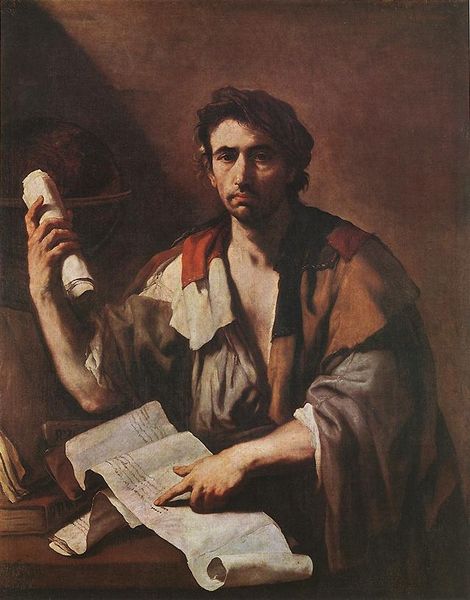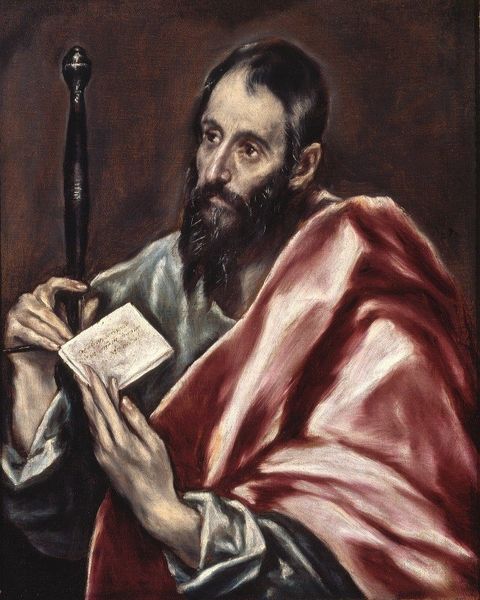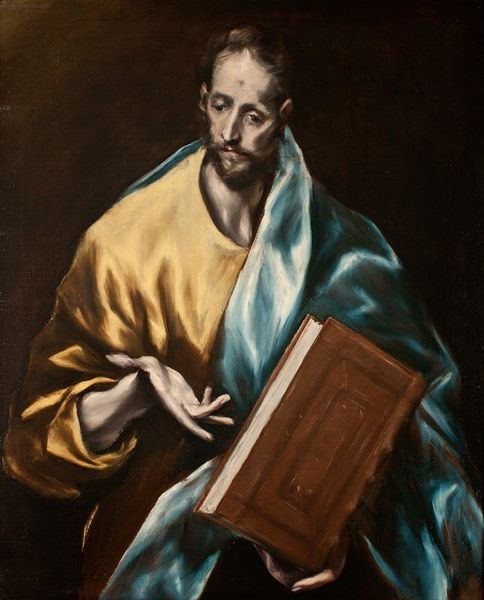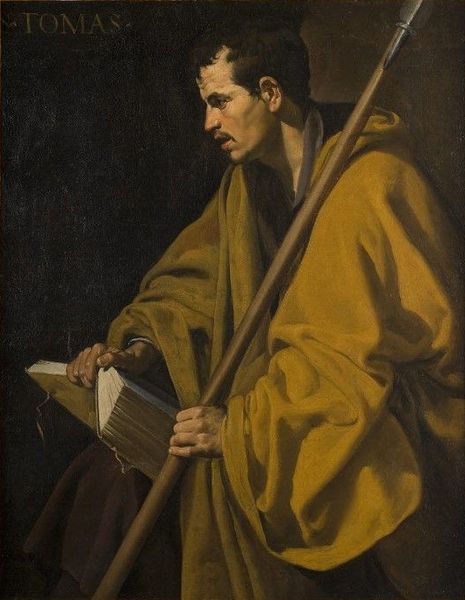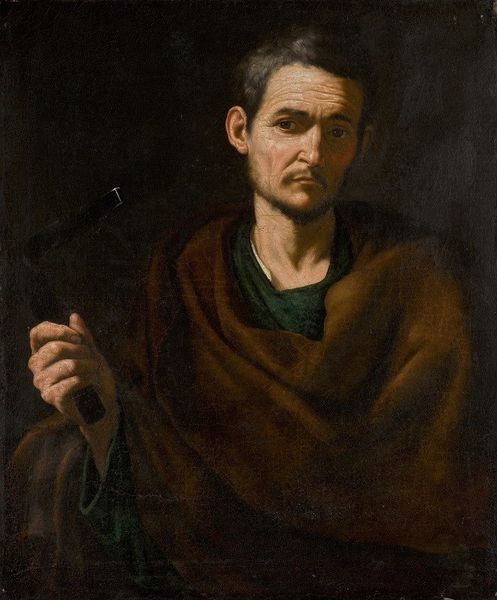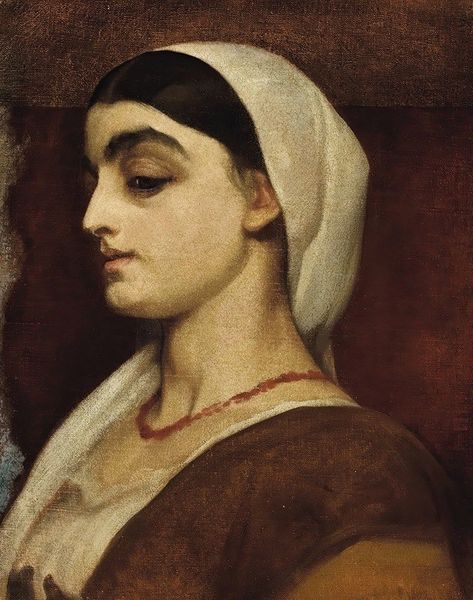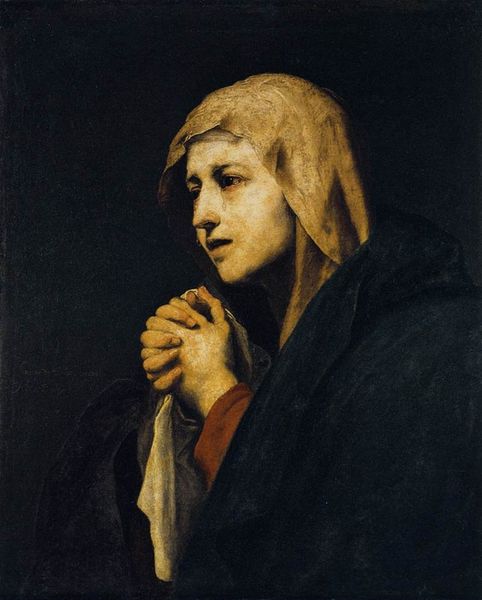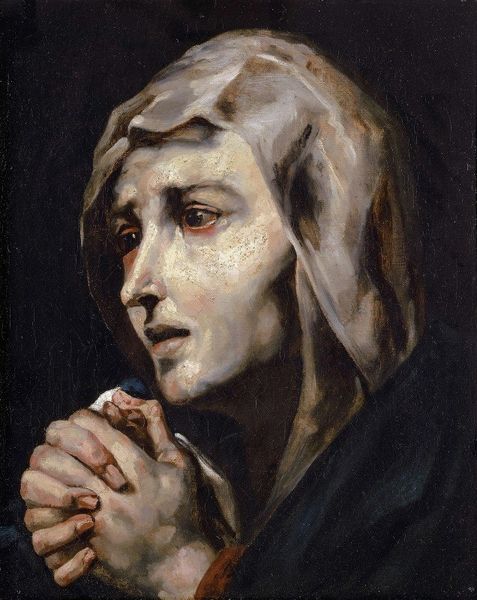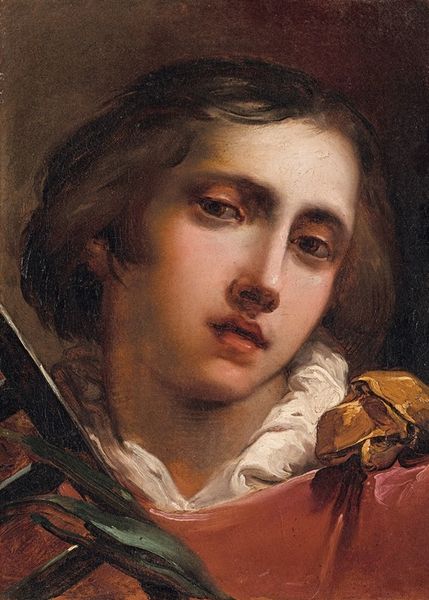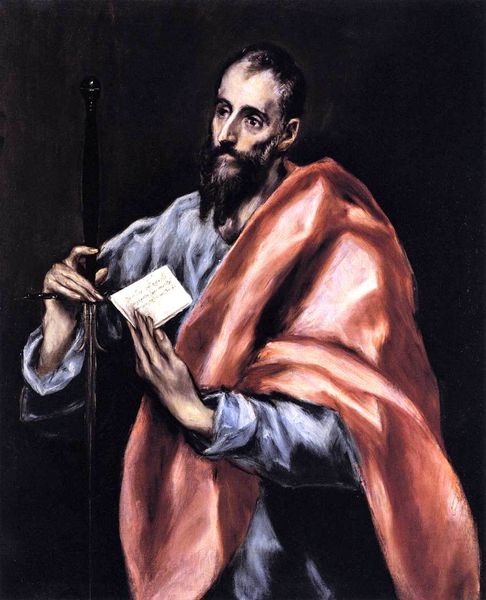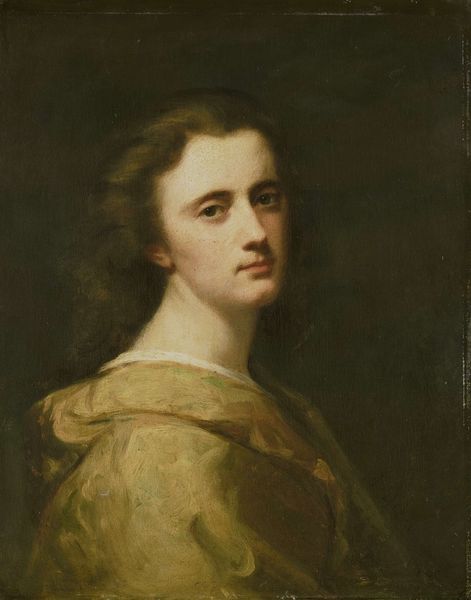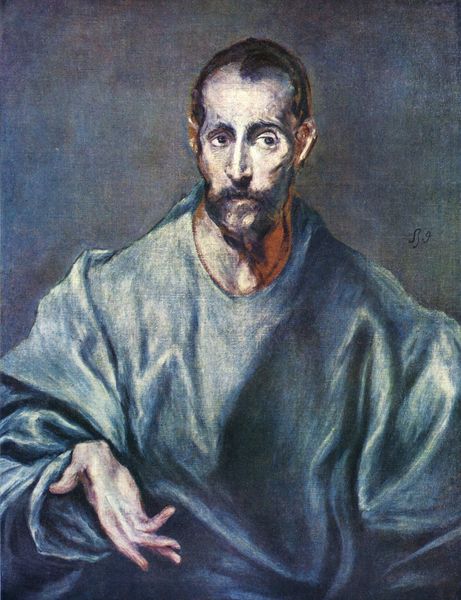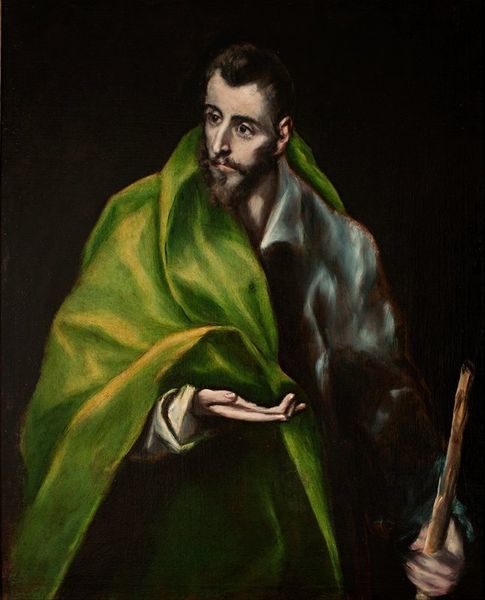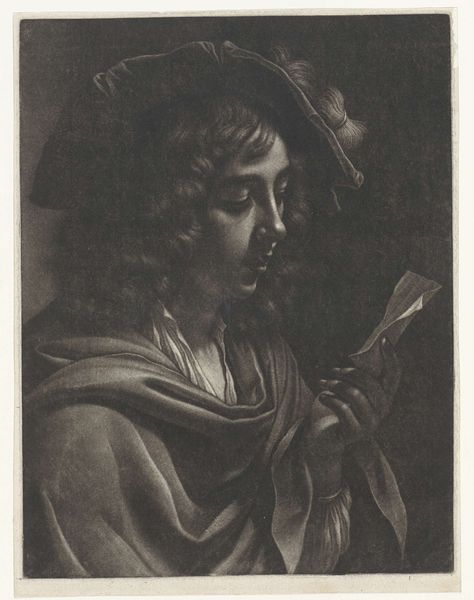
painting, oil-paint
#
portrait
#
portrait
#
painting
#
oil-paint
#
mannerism
#
figuration
#
portrait reference
#
portrait head and shoulder
#
animal drawing portrait
#
portrait drawing
#
facial study
#
facial portrait
#
portrait art
#
fine art portrait
#
digital portrait
Copyright: Public Domain: Artvee
Editor: Here we have El Greco’s “St. John,” painted between 1590 and 1595 using oil paint. I’m immediately struck by the figure's elongated features and the somewhat melancholic mood. What can you tell us about this painting? Curator: Well, looking at it from a historical lens, El Greco's "St. John" exemplifies Mannerist ideals prevalent during that time. We can appreciate it by considering how religious imagery functioned within the social fabric of late 16th-century Spain, a period of intense religious fervor shaped by the Counter-Reformation. El Greco’s patrons sought to create visual representations of religious and moral purity. Have you observed how this piece resonates with, or perhaps diverges from, the typical portrayals of saints? Editor: I see the intense gaze is different. It's less about divine power and more about introspection, almost human vulnerability. Curator: Precisely. That tension between the divine and the human, which the viewer recognizes immediately in St. John’s humanity, creates an accessibility that served a specific purpose for its patrons at the time. Think about it: in what context might an artist strategically deviate from convention? Editor: Maybe to make religious figures feel more relatable? Curator: Exactly. El Greco makes a very direct appeal here, to connect to something that is both other-worldly, and simultaneously fully recognizable, human. A new definition of faith itself was unfolding, for artist, patron, and general society. This speaks volumes about the evolving relationship between art, religion, and society in El Greco’s Spain. Editor: That's really fascinating, the way he balanced the familiar and the ethereal for a changing world. Thank you! Curator: My pleasure. Looking at it through the historical context makes you understand it much better.
Comments
No comments
Be the first to comment and join the conversation on the ultimate creative platform.
